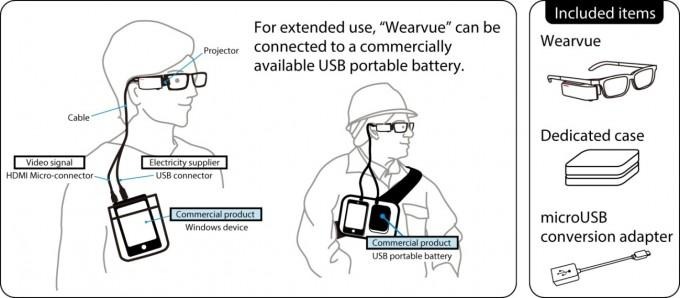Wearvue is the Toshiba smart glass you never saw
This week was filled with announcements of new and upcoming products but, somewhat ironically, Toshiba did the opposite. It revealed that it is canceling its Wearvue product, a Google Glass like that, like the rumored next gen Glass, was intended for the enterprise instead of consumers. What's amusing is how Toshiba canceled the device just a month after it was announced and just a week before it was meant to go on sale. Rather than an isolated case, however, it could be an indicator of a shift in the market.
Virtual reality headsets and, to some extent, augmented reality headsets, are all the rave these days. The one type of headset that seems to have been but a bright but short-lived flicker was smart glasses, popularized by the now defunct Google Glass. Intended to be a consumer product, Glass was eventually scrapped when Google couldn't adequately address both performance issues as well as questions on privacy and security that the glasses brought.
Internally, however, Glass lived on in what would eventually be called Project Aura with improved hardware and a renewed but different purpose. The new Glass would be marketed at workers, in industrial fields, health, etc. The change of environment effectively removed the need to be concerned about privacy issues. By that point in time, however, many smart glass attempts have also shifted their focus to more niche and limited markets, like sports and enterprise.
The Toshiba Wearvue was meant to be such as well, focusing on the B2B market. In terms of design, it look perhaps worse than the first Google Glass, with a conspicuous module at the side. Toshiba wasn't really concerned about hiding that fact anyway. Like some smart glass implementations, Wearvue would actually be connected to a separte device with wires.

Toshiba says it waited for the last minute to cancel the product because there was great interest in the market for something like the Wearvue. Considering how rare we hear about actual industry use of such devices, we aren't exactly convinced yet. Buet perhaps more pertinent to Toshiba, the company is undergoing some heavy reforms, especially after an accounting scandal, and it can't really afford to invest in a product that might not exactly sell.
The company is also rumored to merge with VAIO and Fujitsu into one giant Japanese PC company, though Toshiba continues to downplay those rumors.
